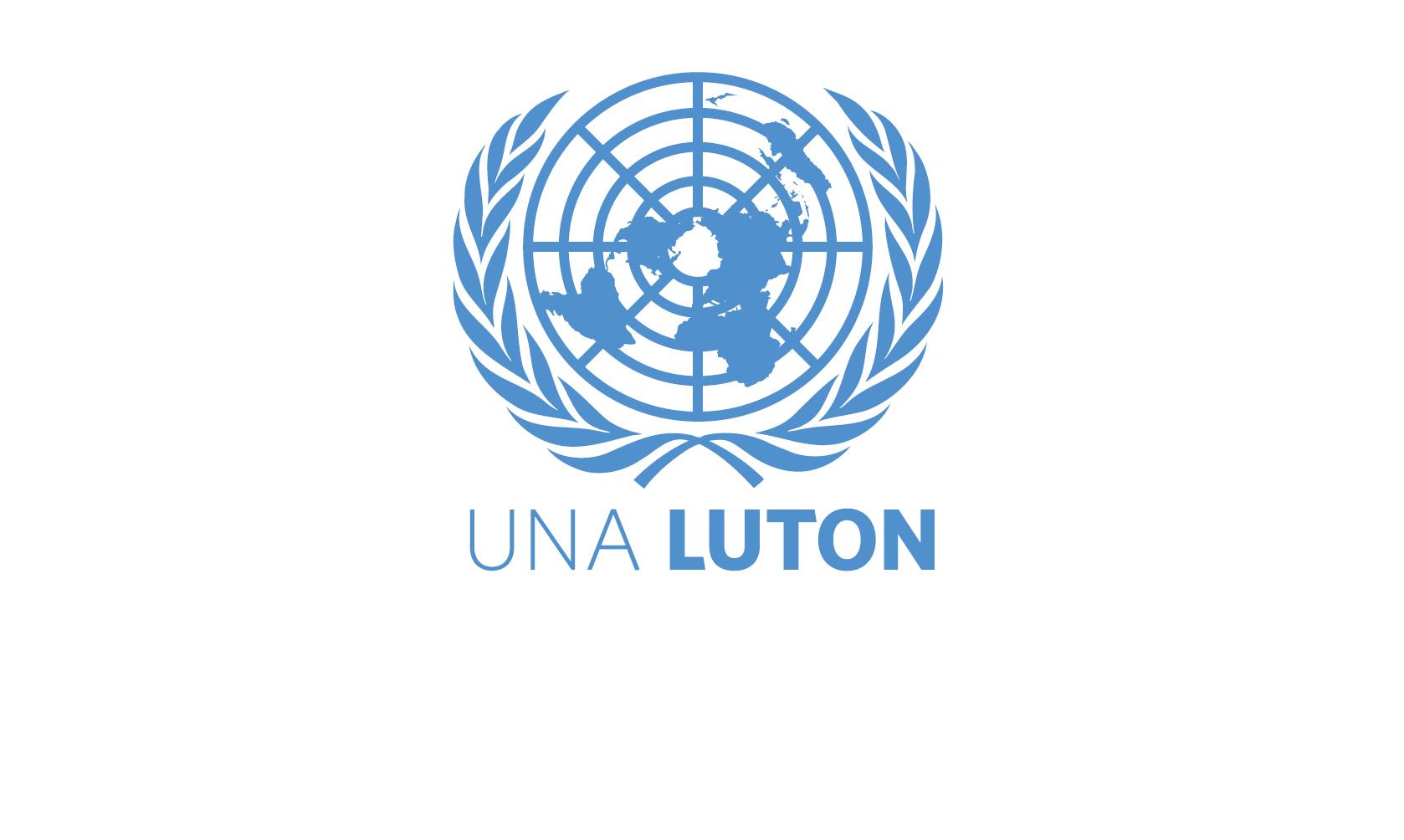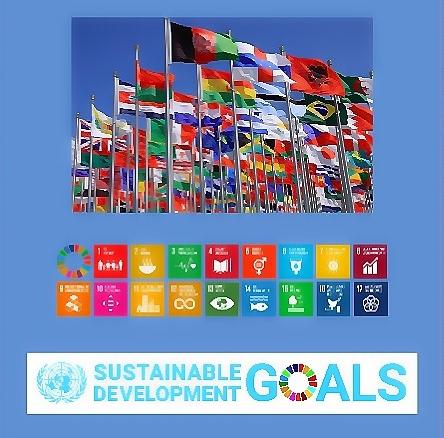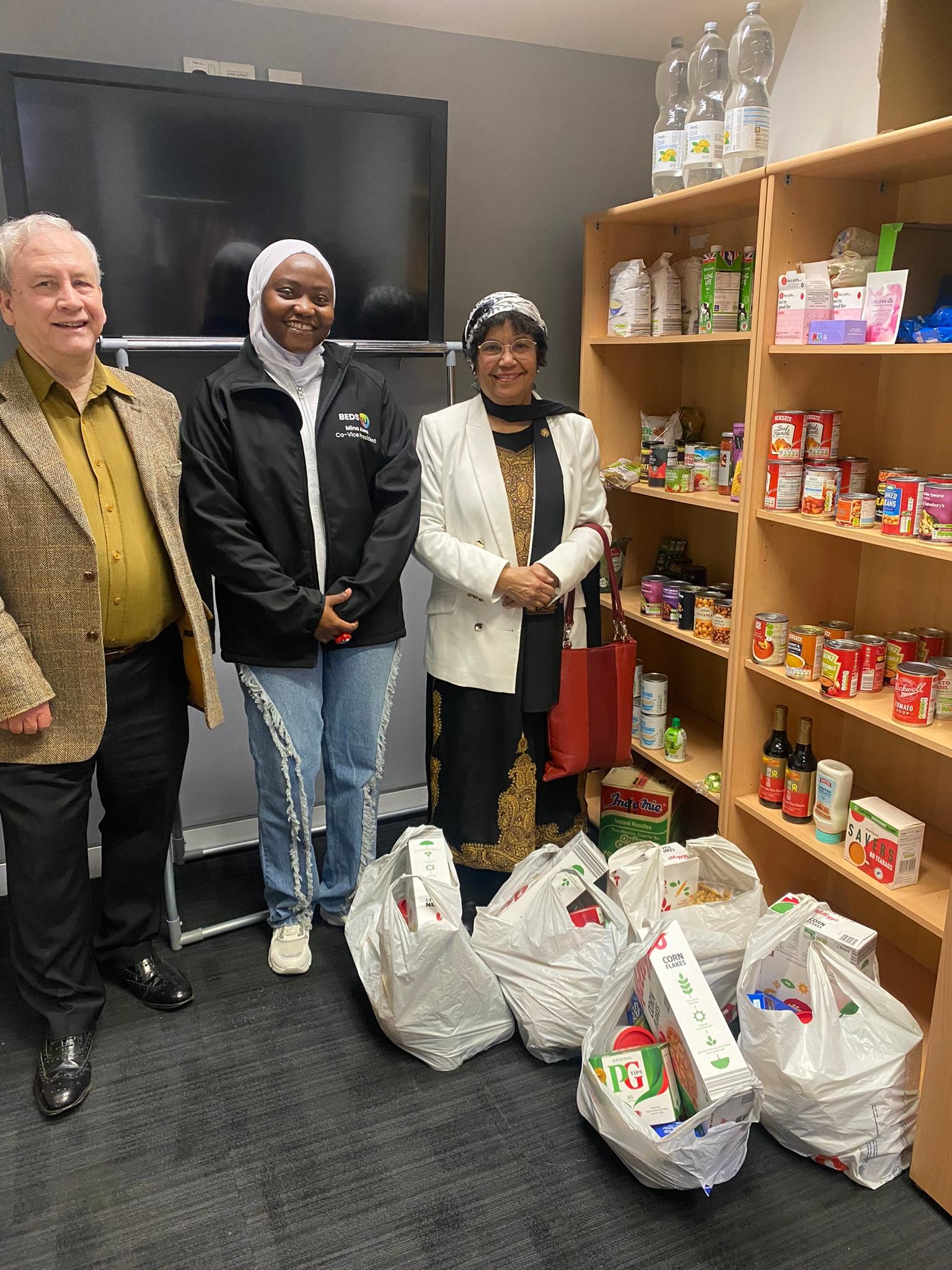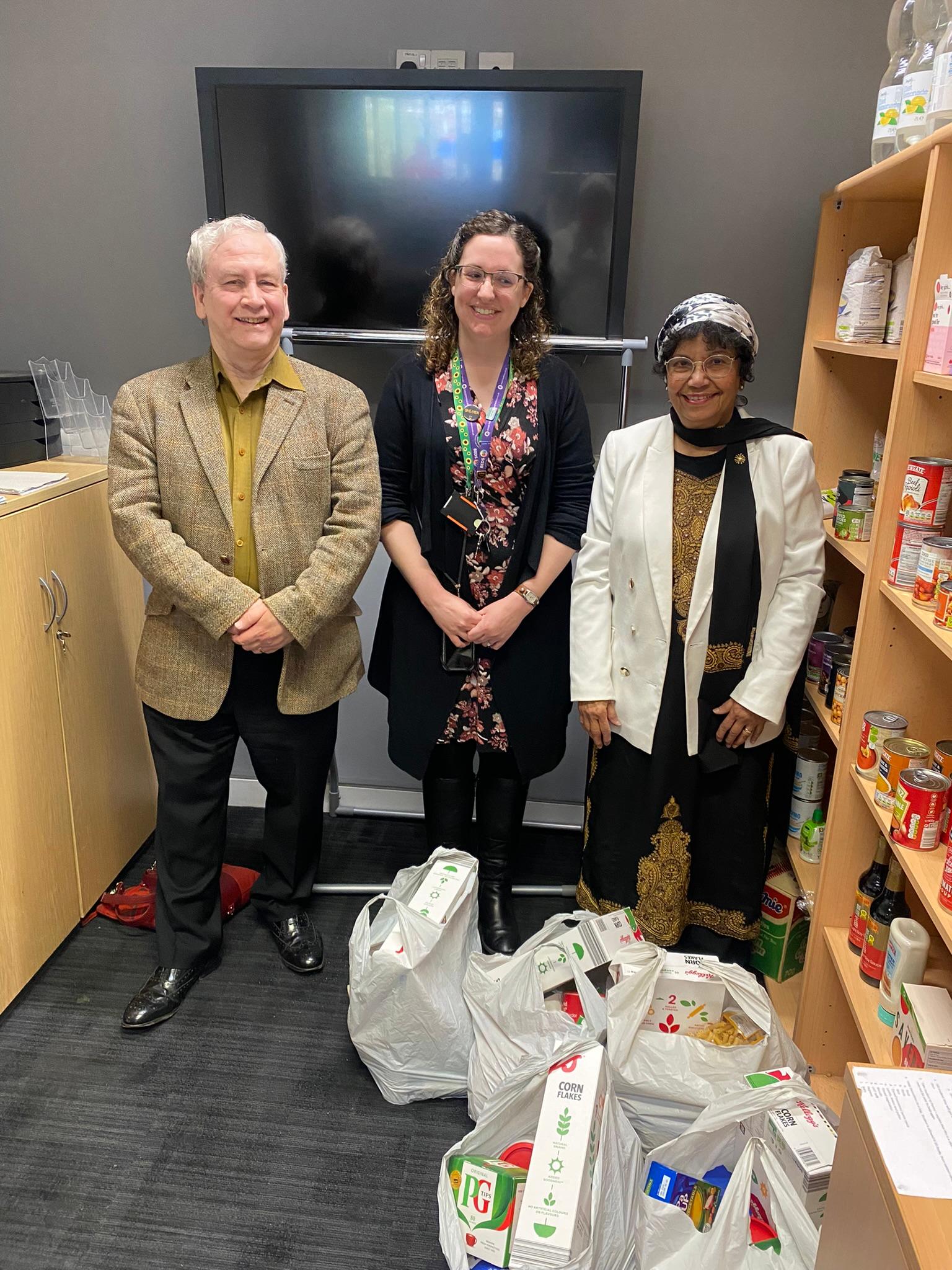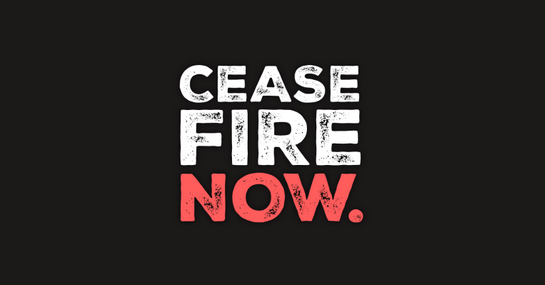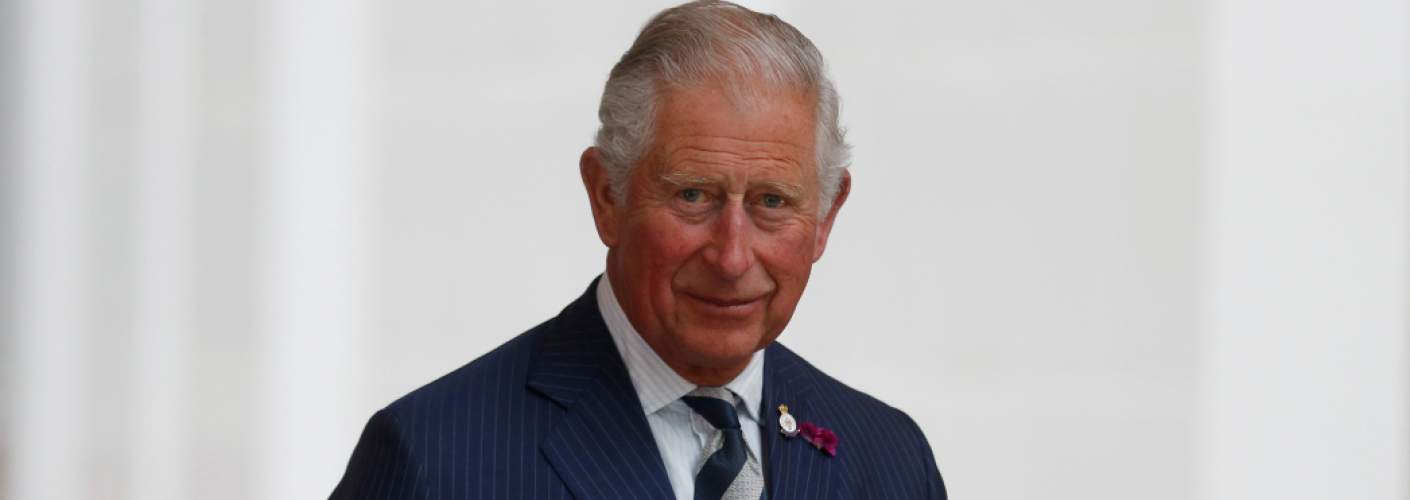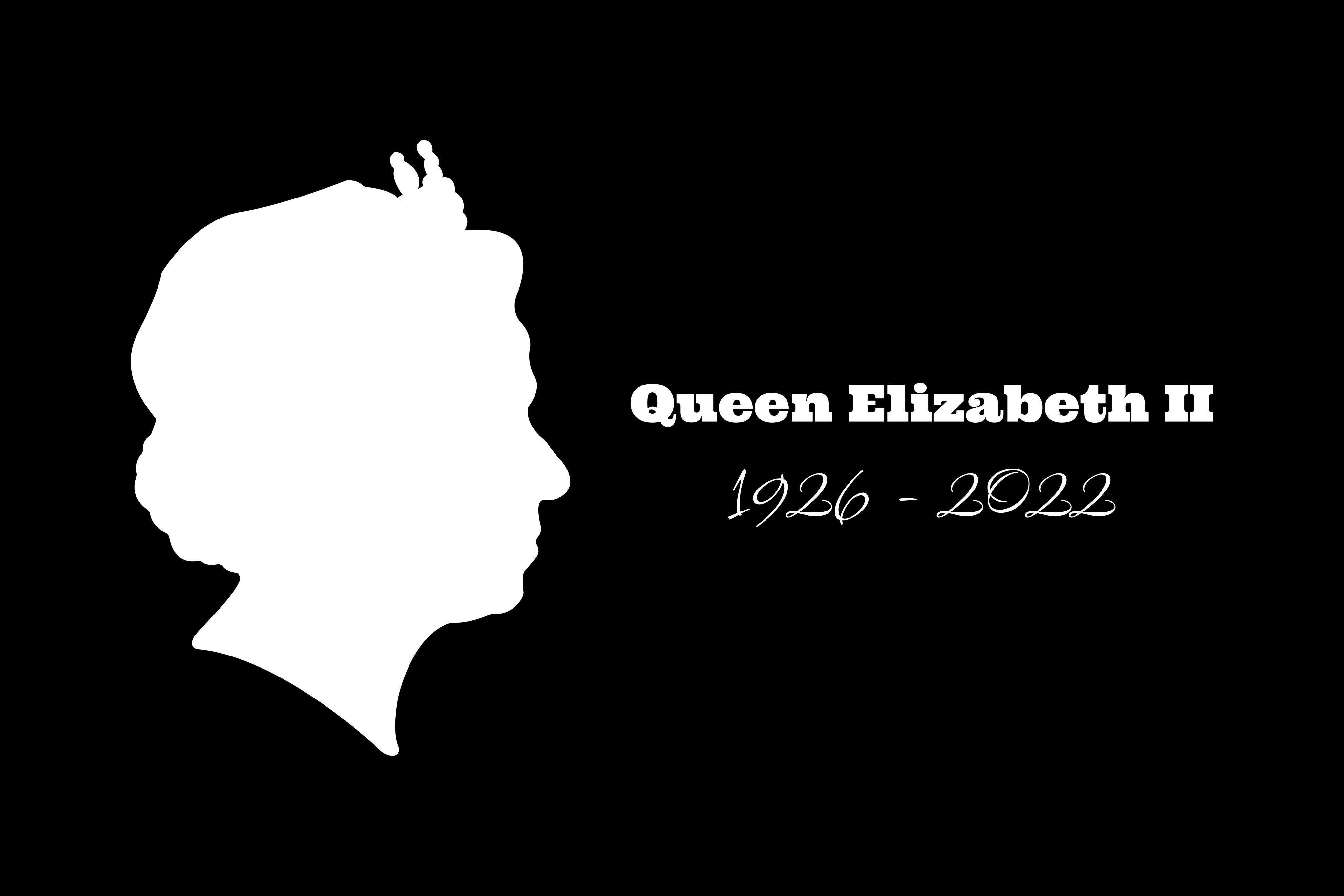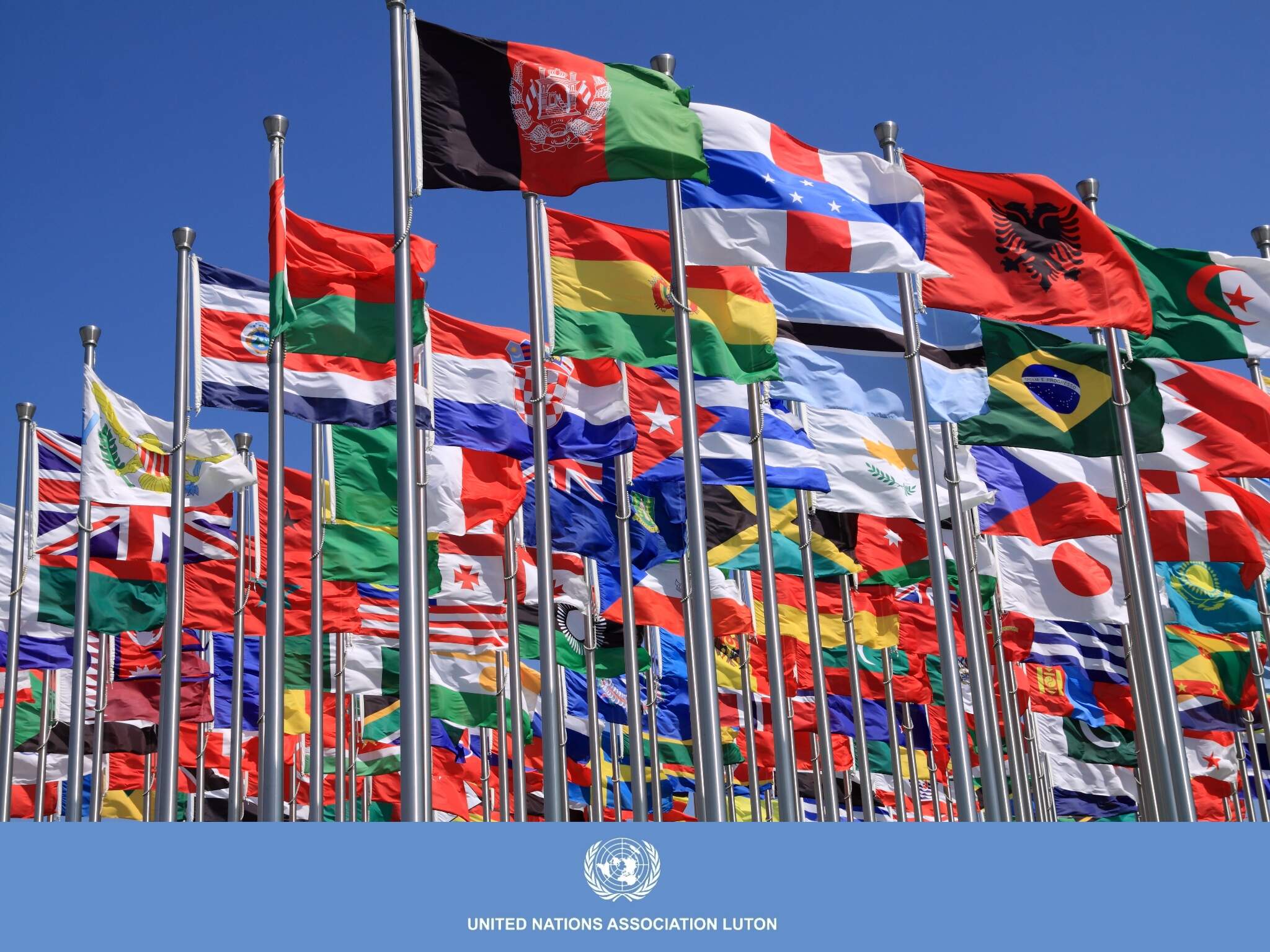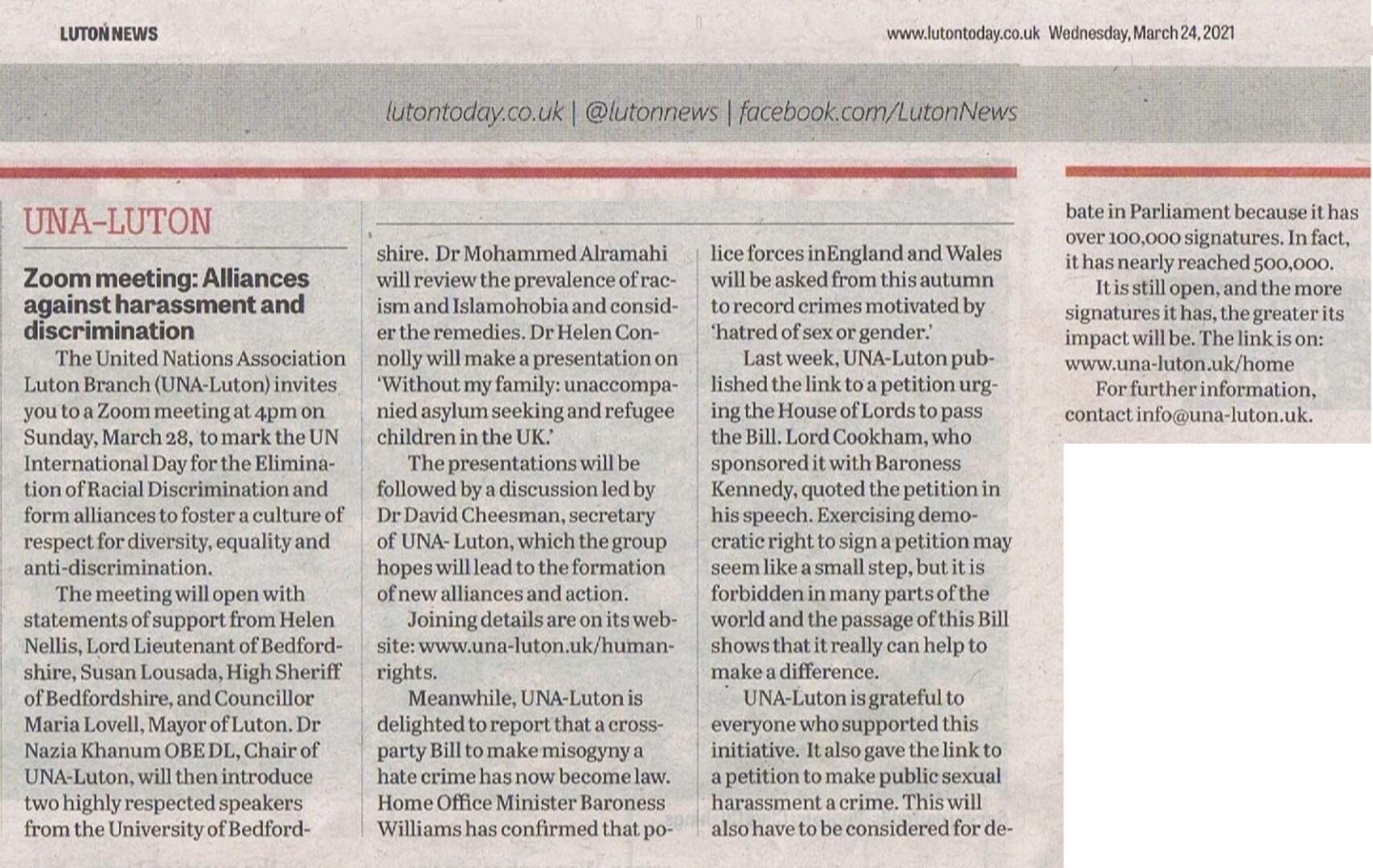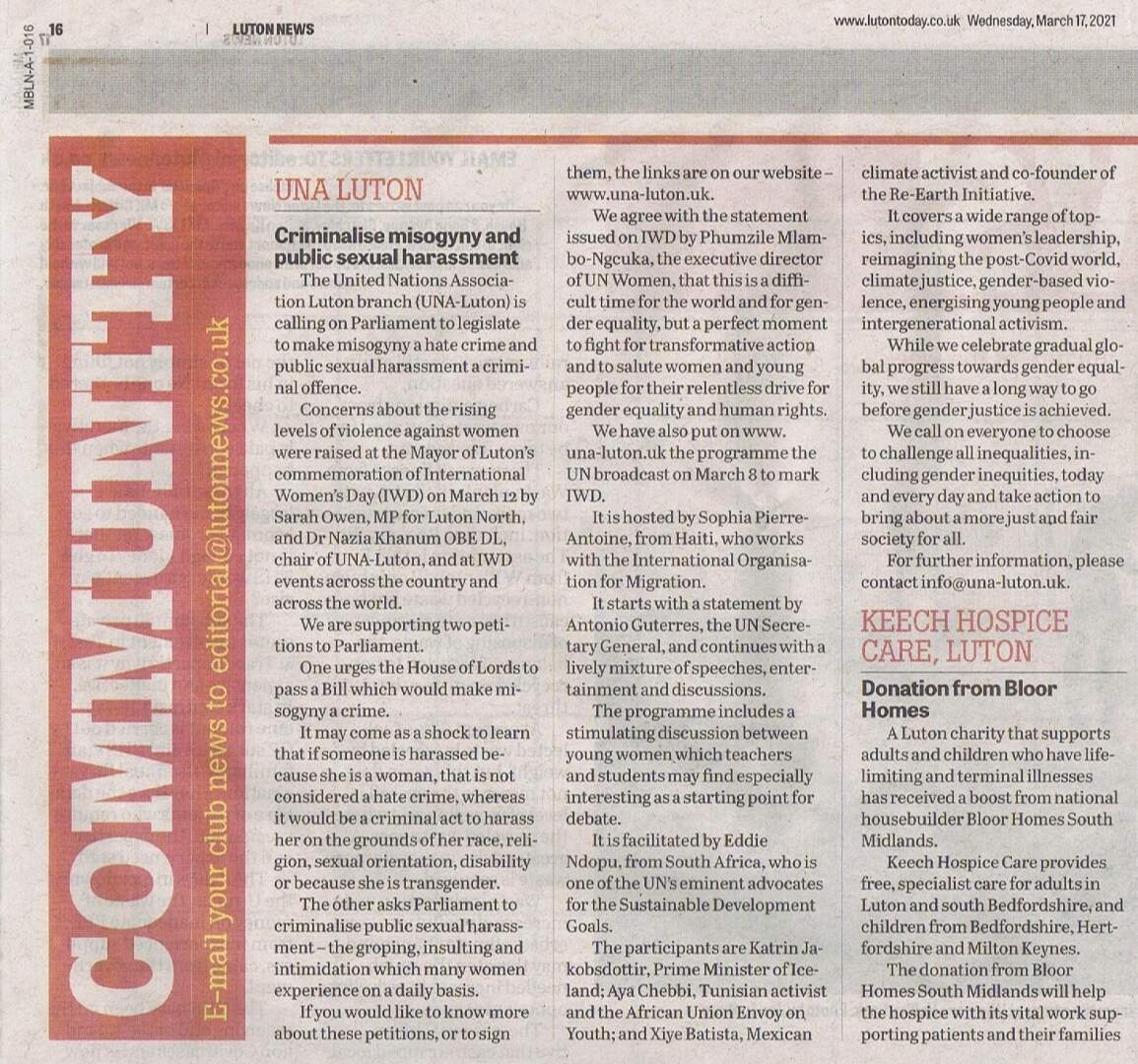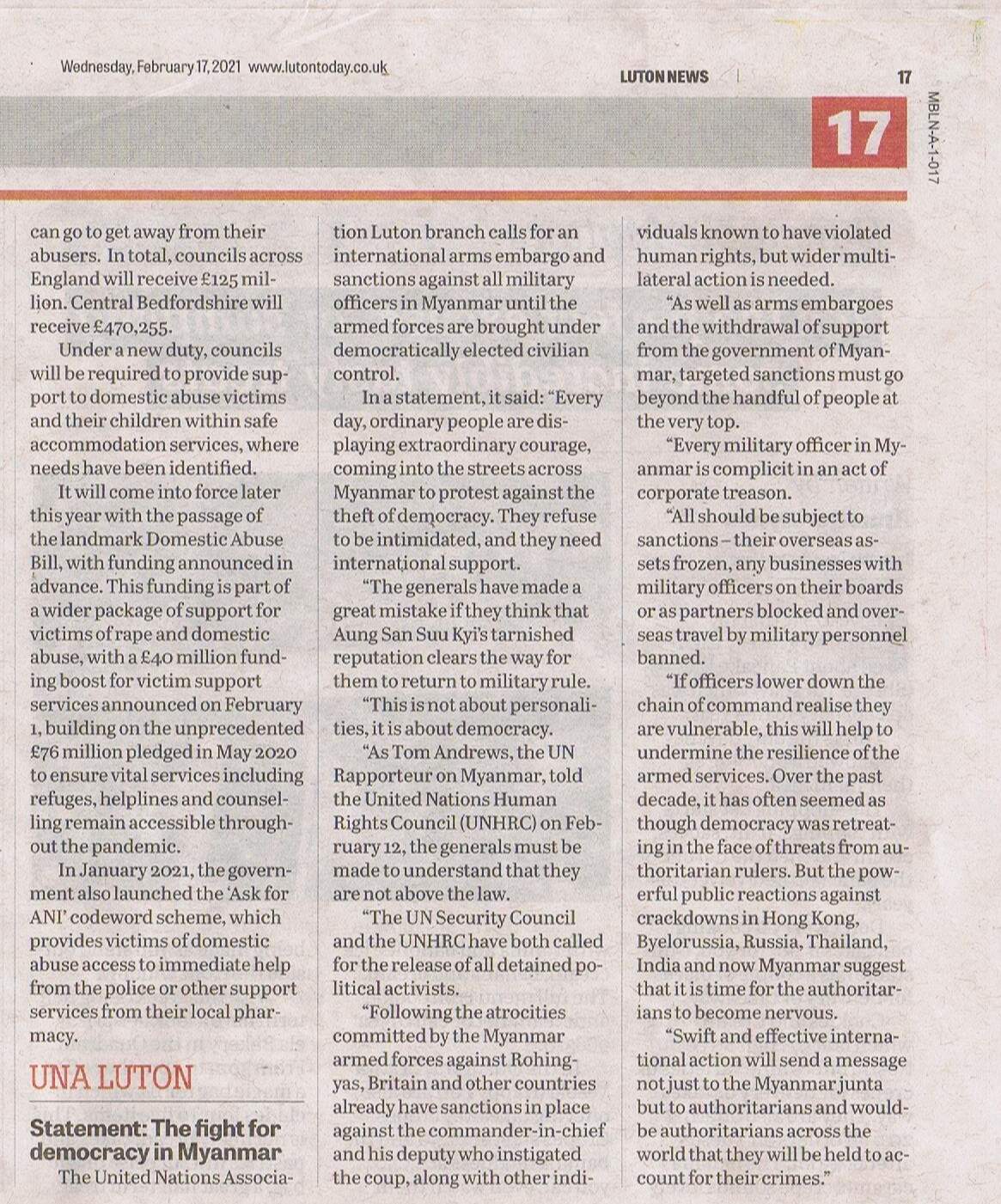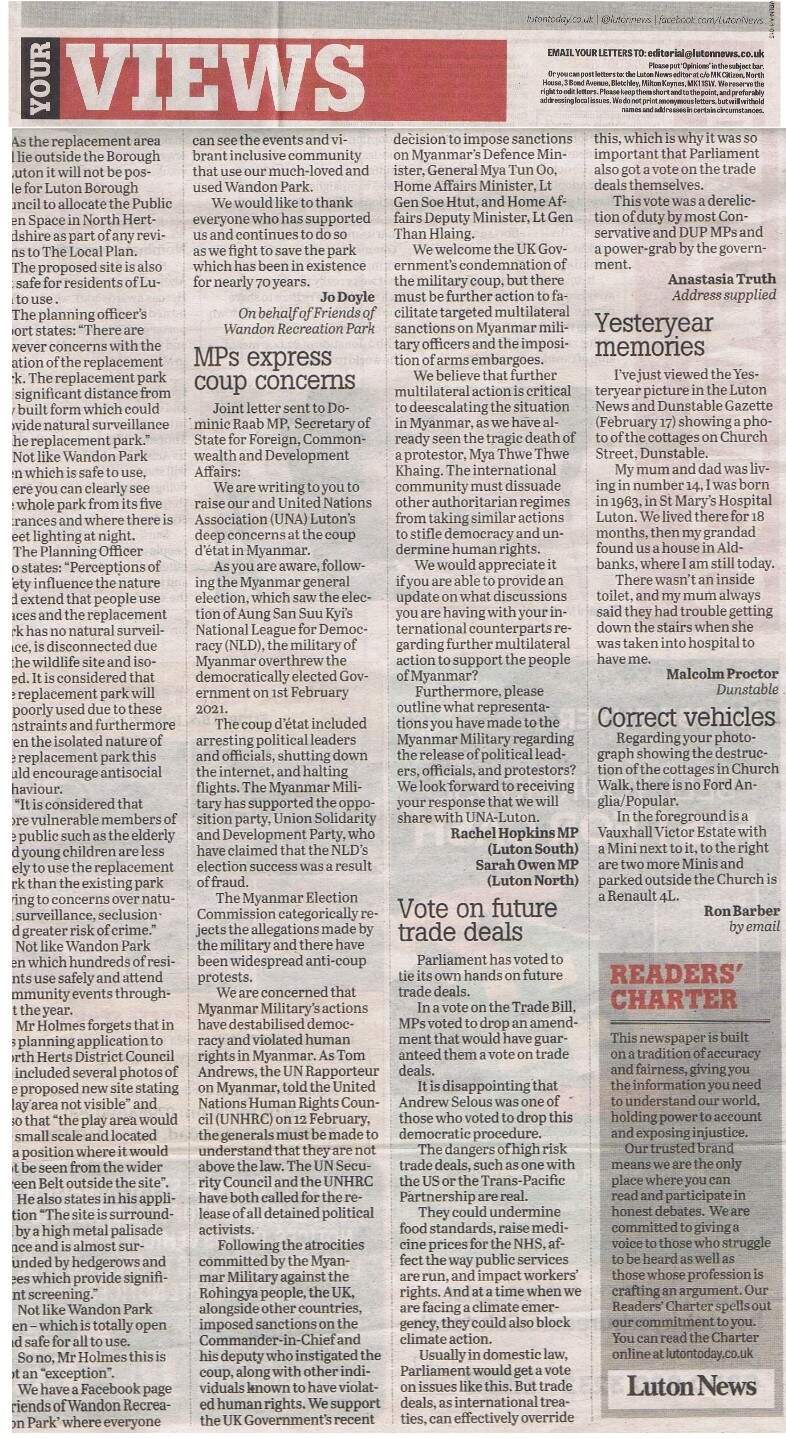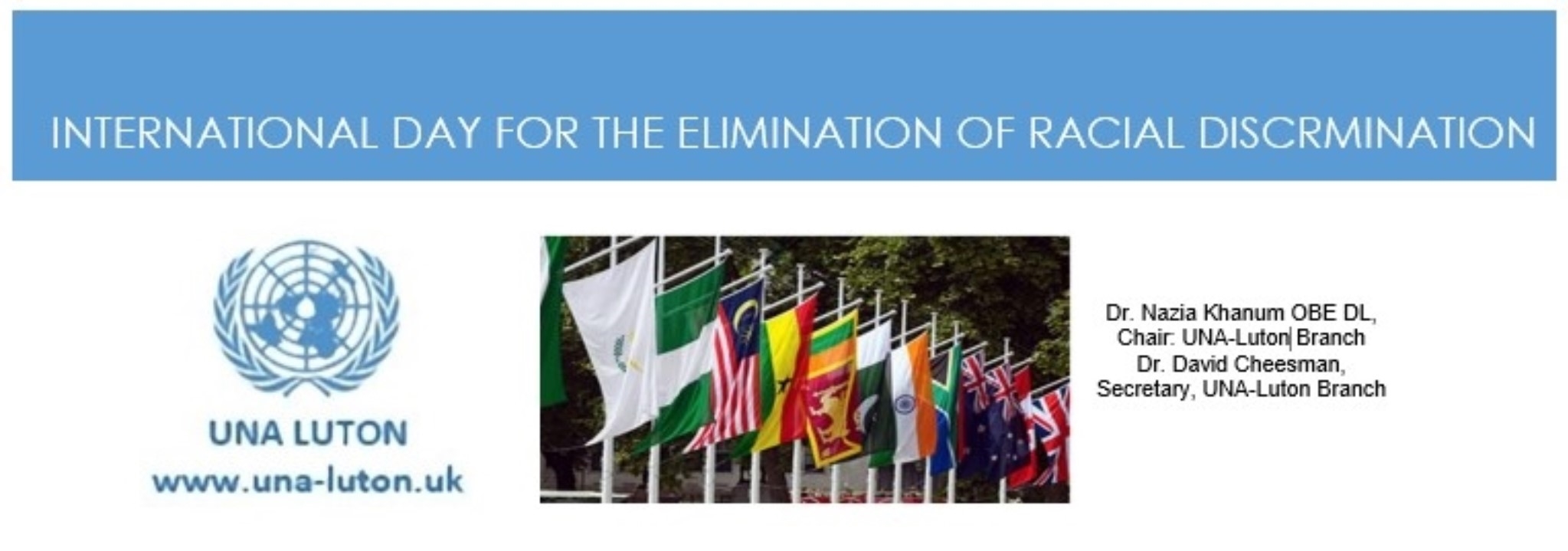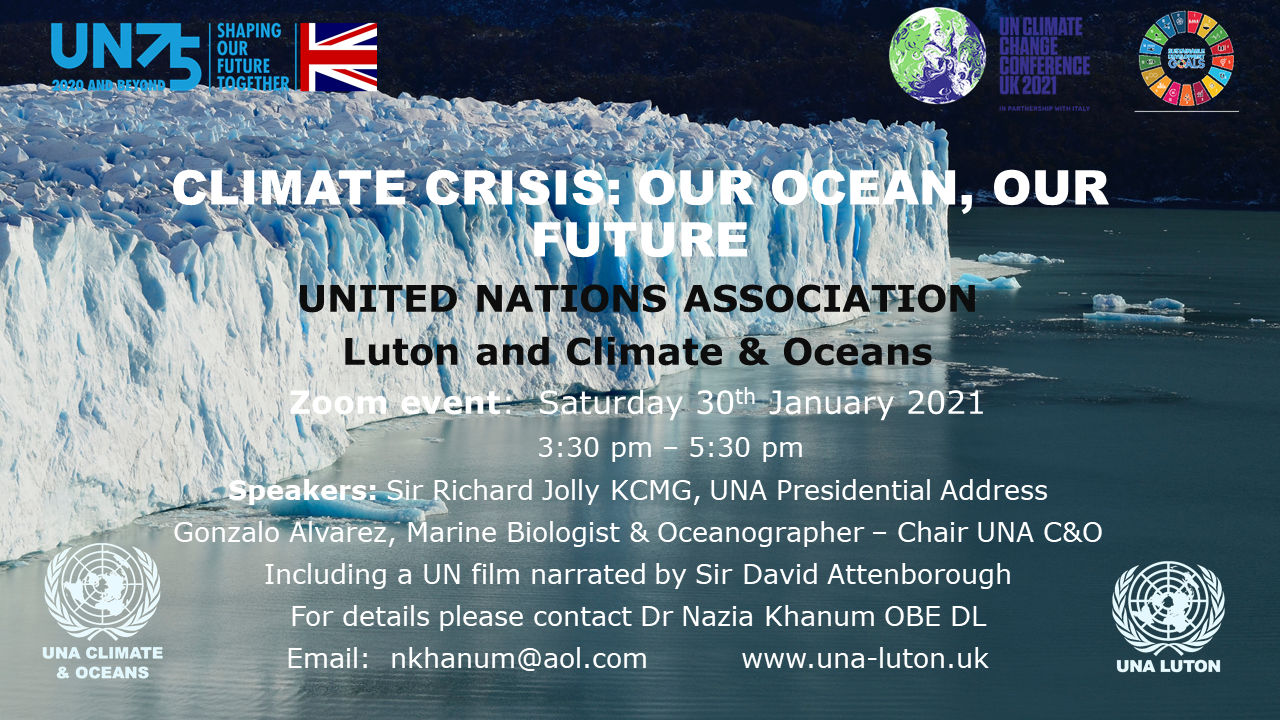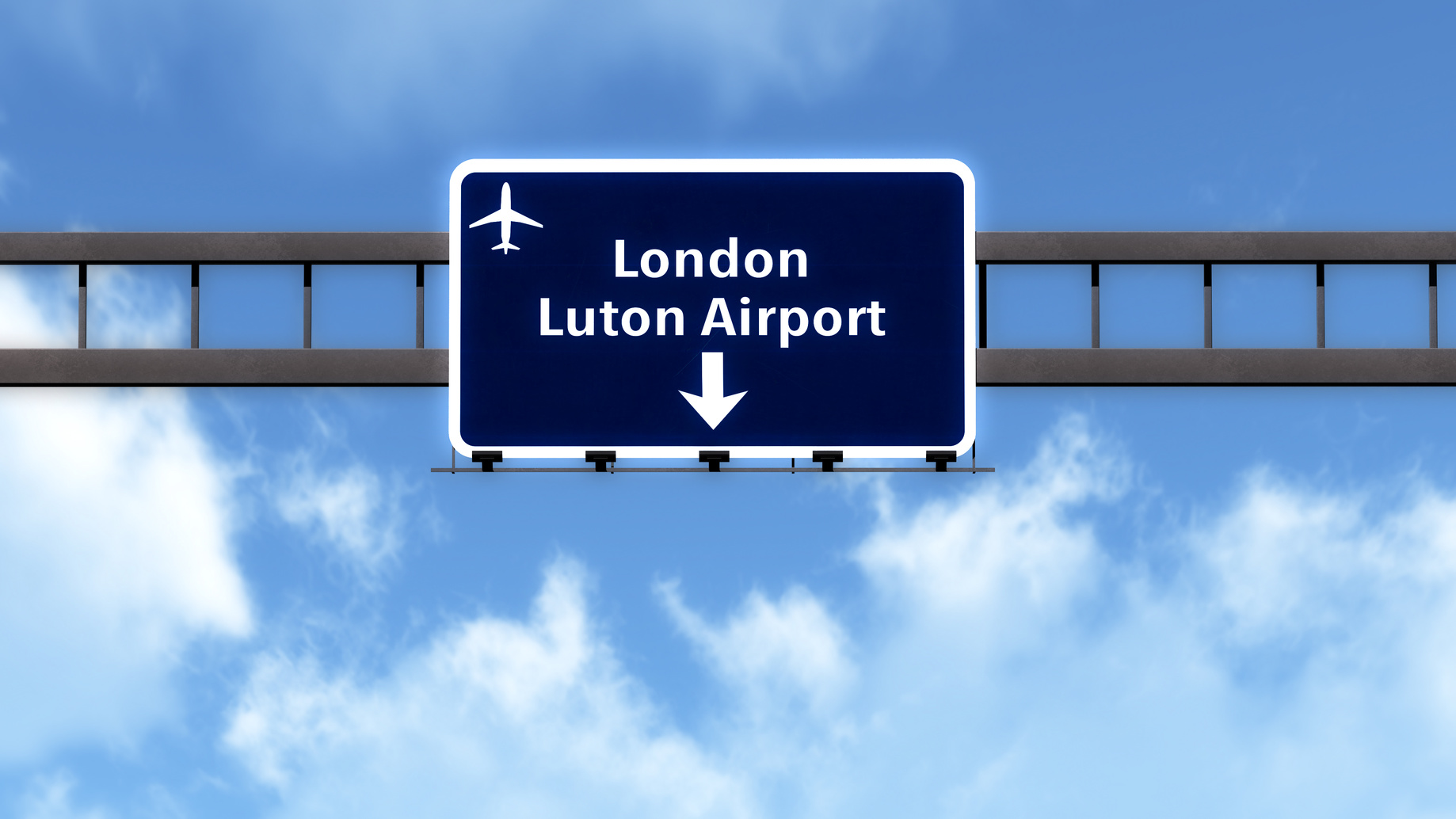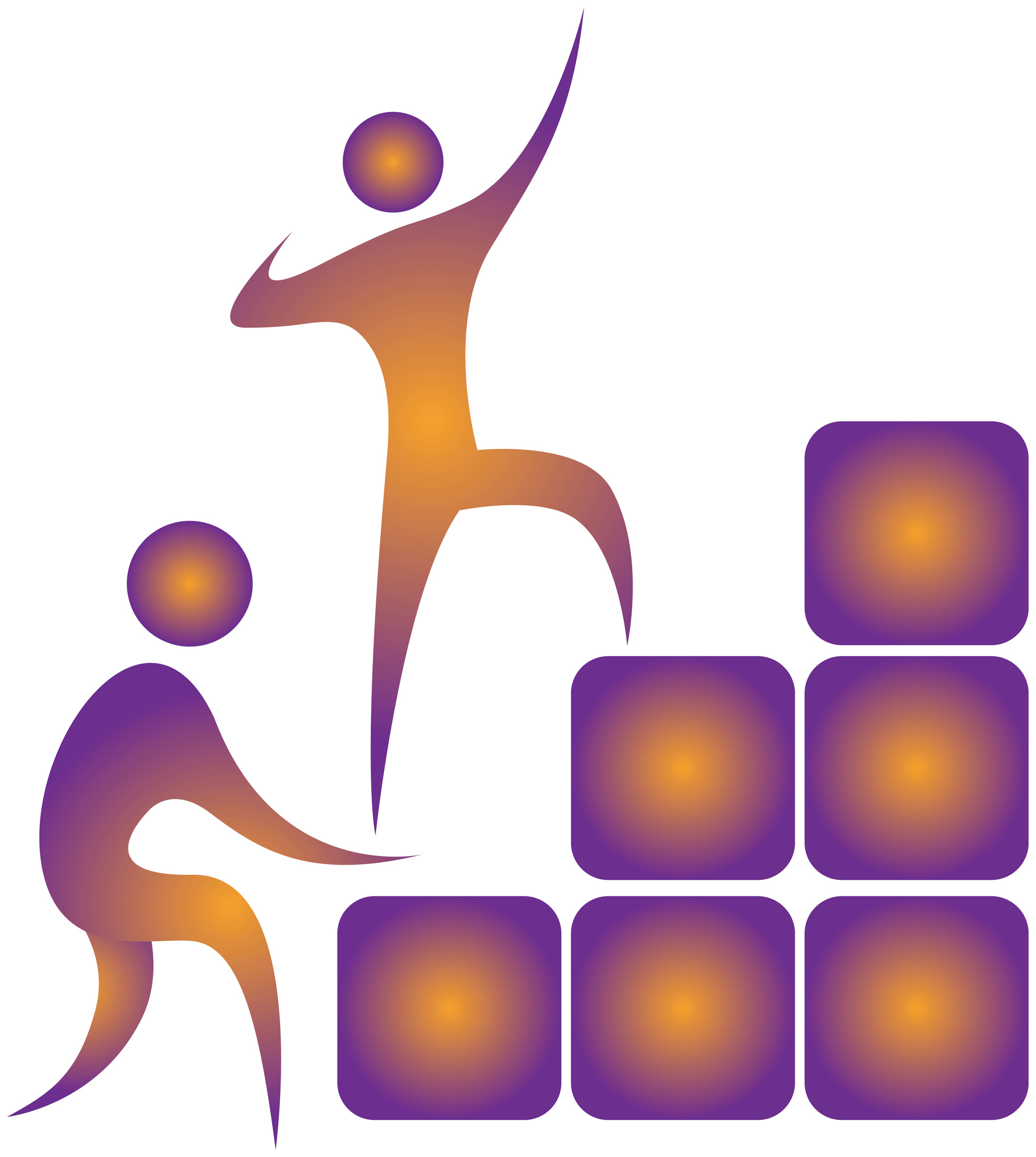UNA-Luton
is the Luton branch of the United Nations Association.
We work in partnership with Equality in Diversity CIC and a wide variety of community organisations and statutory agencies to promote the 17 Sustainable Development Goals of the United Nations.
UNA Luton News
Dr Nazia Khanum OBE DL has been made a Freewoman of the Borough of Luton, the highest honour a local authority can award, and she has been recognised by the prestigious Business America magazine as one of 100 successful Bangladeshis in the UK. For details, go to About us.
University of Bedfordshire Students Union
We have made a contribution to the University of Bedfordshire Students Union foodbank, to help Muslim students who do have food available when they break their fast on campus in the evening during Ramadan. The pictures were taken in the foodbank and shows our Chair, Dr Nazia Khanum OBE DL, and Secretary, Dr David Cheesman, presenting the food bags to Mina Awal, Vice President of the Students Union, and Amy, Student Liaison staff member.
Letter to Secretary-General of the United Nations, proposing replacement of Security Council with a Security Agency accountable to the General Assembly
Following our discussion of Security Council reform on 21 October 2023, we resolved at our Annual General Meeting on 20 January 2024 to write to the Secretary-General proposing its abolition. Our proposal is that binding resolutions on security should be taken by a two-thirds majority of the General Assembly and implemented through a Security Agency answerable to the General Assembly.
We have come to this conclusion because we believe that, in practice, the Security Council prolongs rather than maintains security and that this is bound to be the case when there is a Security Council above and outside the General Assembly. The debate on reform is a distraction from the key priority of improving the effectiveness of the United Nations.
UNA Luton Events, with links to website pages
Details to follow
Updates on recent UNA Luton events
Increasing the supply of social housing in the UK, 20 September 2024: The right to housing is a fundamental democratic freedom. We discussed the funding options for social housing and how to ensure that the housing pipeline includes sufficient numbers of decent social homes in the areas where they are most urgently needed, designed to meet the requirements of local households. The speakers were Professor Stewart Smyth of Cork University Business School, Dr Suzanne Muna, Secretary of the Social Housing Action Campaign (SHAC) and Claire Astbury, Head of Housuing Strategy and Development, Luton Borough Council.
Remembering Srebrenica, 31 July 2024: Each year, we at UNA-Luton remind ourselves of the lessons to be learned from Srebrenica. On 23 May 2024, the United Nations General Assembly declared 11 July to be the International Day of Reflection and Commemoration of the 1995 Genocide in Srebrenica. Our Chair, Dr Nazia Khanum OBE DL, talked about her own visit to Srebrenica and Paul Salver discussdc Srebrenica, the Holocaust and continuing examples of genocide.
Autism - global, national, local: We viewed a film about a family's experience of autism, as the starting point for discussion about the impact of autism of families and society, and what we can do to promote appropriate policies and services.
UNA Luton Women's Peace Parade 27 May 2024
Our
popular annual Peace Parade formed part of Luton International
Carnival - see Luton Carnival page for pictures.
International Mother Language Day: multi-lingual learning is a pillar of learning and inter-generational development - event held on 25 February 2024
United Nations Security Council reform - can it ever happen? - event held on 21 October 2023
Restoring a healthy climate:
Plastic Pollution & Solutions with a special focus on the health of children
and adults
- event held on 23 September 2023
Remembering Srebrenica - event held on 16 July 2023
UNA Luton Women's Peace Procession at Luton International Carnival 28 May 2023
International Women's Day - event held on 12 March 2023
International Mother Language Day - celebration held on 26 February 2023
Dementia-Alzheimer - global/national/local - Thursday 19 January 2023
Focus on Homelessness - 11 December 2022
We support United Nations Security Council Resolution 2728 on 25 March 2024 calling for an immediate cease fire in Gaza and the release of all Israeli and other hostages.
We deplore the continuing hostilities in Gaza. The destruction of innocent lives on such a large scale is unforgiveable.
Call for immediate humanitarian ceasefire in Gaza
We join with the United Nations Association UK and over 300 organisations in 50 countries in calling for an international effort to achieve an immediate ceasefire in Gaza and Israel. We also support the statement of Antonio Guterrez, Secretary-General of the United Nations, at the Cairo Summit on 21 October 2023:
"The grievances of the Palestinian people are legitimate and long. We cannot and must not ignore the wider context for these tragic events: the long-standing conflict and 56 years of occupation with no end in sight. But nothing can justify the reprehensible assault by Hamas that terrorized Israeli civilians. And those abhorrent attacks can never justify the collective punishment of the Palestinian people. International humanitarian law – including the Geneva Conventions – must be upheld. That includes protecting civilians and not attacking hospitals, schools and UN premises that are currently sheltering half a million people."
None of the arguments have changed since the Secretary-General's statement. The only important change on the ground is that thousands of people continue to be killed and injured and the conflict is widening.
In October 2023, we wrote to Sarah Owen and Rachel Hopkins, our two Luton MPs, asking them to
urge government ministers to work with Britain’s allies to use all the tools at their disposal to secure a permanent ceasefire in Gaza.
Both MPs subsequently lost their shadow minister positions after voting on 15 November 2023 for a ceasefire. We greatly respect the stand that they made.
King Charles III
After 70 years, King Charles has succeeded his mother to the throne in an impressive demonstration of the efficiency of the British constitution. We should not take for granted the privilege of living in a country where such momentous changes take place peacefully. There are no rumours of coups, no riots, no tanks.
Many Britons are republicans but there have been no calls for revolution.
Good humoured and disciplined crowds queued to see the lying in state and lined the streets to admire military displays of ceremonial precision. This is not the way of all countries, nor was it always the way of our own country in centuries past.
While recognising our good fortune, we must extend a hand of welcome to all of those who seek shelter in the UK from parts of the world which suffer violence and oppression.
Community of communities
We welcome the new King's description of the United Kingdom as a community of communities and his commitment to faith leaders that he sees the role of the Church of England as preserving the space for all faiths - and those of no faith - to express themselves freely and to worship as they wish. The four nations of the UK embrace a plurality of communities, and we look forward to the King and the new Prince of Wales continuing to champion diversity.
Queen Elizabeth II set an example of consistency and commitment to service which we should all follow. Her reign saw a period of unprecedented change and and she was the first to embrace the diversity of faiths, cultures and ethnicities in the United Kingdom as well as across the Commonwealth. This period of mourning has confirmed how much we have in common. Our diversity, both in the four nations of the United Kingdom and the communities within them, gives us strength and vigour. She has left a solid foundation for the reign of King Charles III, who has demonstrated his determination to maintain and build upon her legacy.
Join with us to take forward the UN principles of democratic values and sustainable development goals of the UN and make a difference to our society and the world:
- Combating climate change and finding solutions
- Promoting peace through a one world approach and a counter-narrative to the propaganda of violent extremism and division in society
- Working with disadvantaged communities to improve their awareness about the importance of education, health, economic engagement and participation in all aspects of public life
- Working with disadvantaged communities to improve their awareness about the importance of education, health and economic engagement
- Promoting equality and human rights
- Eradicating violence against women and girls
- Promoting human solidarity, respect for diversity and community cohesion
Russia must withdraw from Ukraine
The invasion of one UN member state by another is illegal
and a violation of the UN Charter. It is even more unacceptable when the
aggressor is a permanent member of the UN Security Council, who has a responsibility
to set an example of upholding universal values of peace and human rights, and
when the sovereignty of a democratic state has been violated. Russia must leave
Ukraine immediately, before it causes more bloodshed and misery.
AS UN Secretary-General, Antonio Guterres, told the General Assembly on 3 March:
‘End hostilities in Ukraine – now. Silence the guns – now. As bad as the situation is for the people in Ukraine right now, it threatens to get much, much worse. The ticking clock is a time bomb.’
See the Secretary-General’s statement on 24 February, the day of the Russian invasion.
Ukranian refugees
The United Kigngdom should match the generosity shown by so many people across Europe and offer a safe haven for all Ukrainians escaping from the war. There should be open access to the UK for three years.
Meanwhile, the Home Office must get its act together. Its leisurely response to this crisis is unacceptable. Everyone who is entitled to enter the UK should have their applications processed swiftly and efficiently.
If you wish to support the people of Ukraine and are not sure which charity is best placed to help, you may wish to consider the
Disasters Emergency Committee Ukraine Humanitarian Appeal
DEC is a partnership of 15 UK charities, including Islamic Relief, Christian Aid, Save the Children and the British Red Cross. It coordinates resources and relief work between its members. This avoids having to choose one organisation over another.
The betrayal of Afghanistan
The suffering in Afghanistan continues. The international community should targetassistance to the people of the country, regardless of their views about the Taliban government.
If you want to help, you may consider donating to the
Disasters Emergency Committee Afghanistan Crisis Appeal.
Below is a letter we published in the Luton News in August 2021
Britain and its allies must live up to their responsibilities after abandoning Afghanistan to the brutal and misogynistic forces of the Taliban. In preparation for the House of Commons debate on Afghanistan on Wednesday 18 August, the United Nations Association Luton Branch supported both Luton MPs by sharing with them a statement of our concerns about the future.
Although the speed of the collapse of the Afghan government was unexpected, the outcome of the untimely withdrawal of the NATO forces led by the United States was widely predicted. That withdrawal was not inevitable but was a deliberate decision of the US government, followed by the UK and other governments. Although the war in Afghanistan is often described as America’s longest, that is in fact the Korean War, which technically has still not ended. 71 years on, nearly 30,000 United States troops are permanently stationed in South Korea, demonstrating American commitment to its independence as a democratic nation. Evidently, the United States does not have the same commitment to freedom, democracy and human rights in Afghanistan. For several years, international forces have not performed a combat role in Afghanistan. The numbers were relatively low, and they were supporting and providing confidence to Afghan forces. The hasty and disorganised withdrawal of American, British and other international forces is a betrayal of the people of Afghanistan - and of all those killed in the conflict since 2001: 457 British troops, 2,448 American troops, 3,846 American contractors, 687 international troops, 72 journalists, 444 aid workers. However, the largest sacrifice was made by Afghans - 66,000 members of the military and police forces and nearly 50,000 civilians.
Perhaps the greatest tragedy is that we have collectively stolen the future of a whole generation of girls and young women who over two decades have been able to take advantage of education, gain confidence and aspire to careers and a degree of personal independence – and to bring up their families with democratic values.
Following our humiliating and shameful retreat, we no longer have influence on the ground in Afghanistan, so we have to focus on the few areas where we do have control:
1. While NATO forces still hold the military airport in Kabul we welcome the British government’s commitment to airlift out the interpreters and other Afghans who worked with us, along with their families.
2. As many MPS an all sides of the House stressed during the debate on 18 August, these events will intensify the world refugee crisis. We are pleased that the government stands ready to accept significant numbers of Afghan refugees and asylum seekers in addition to the existing schemes, but we deplore the fixation with numbers that they displayed during the debate. This is not the time to be tied down to arbitrary numbers. We must demonstrate our core humanitarian values by offering safe haven to whoever needs it - and giving local authorities the money they need to help refugees settle in. These are people who have already helped us. After settling here, they will continue to make a contribution to our national life.
3. As several MPs pointed out, we need to recognise that Taliban-controlled Afghanistan will be an inspiration for the remnants of ISIS and Al-Qaeda, for Boko Haram and for disaffected young people across the world, including the UK and internationally connected towns like Luton. We must increase our vigilance in identifying potential radicalisation, taking those who represent a threat to society off the streets and supporting young people who are vulnerable to online grooming by extremists.
4. The risk of exporting violent terrorism should also concern Russia and China, who are stepping into the vacuum we have created and establishing friendly diplomatic relationships with the Taliban, so may have some influence over them. We should make full use of our position in the Security Council to persuade Russia and China that it is in their own interests to persuade the Taliban to adhere to the statements they have made in Doha that they will not take reprisals against people suspected of working with us or the previous government and that they will respect the rights of girls and women to education, work and personal freedom.
The slaughter must end in Palestine and Israel
In May 2021, we wrote an open letter to our two MPs, calling for a cease-fire in Palestine and Israel and for military and financial sanctions to be imposed on Israel until its government complies with international law. Although the bombardment of Gaza has now stopped, there is still no peace in the region, and there cannot be until the rights of Palestinians are recognised and upheld and the illegal settlements and evictions in the occupied territories are ended.
To: Sarah Owen MP for Luton North & Rachel Hopkins MP for Luton South
CC Cllr Hazel Simmons MBE, Leader of Luton Borough Council
12 May 2021
Israeli-Palestinian conflicts and Human Rights
We are writing on behalf of the United Nations Association Luton Branch to express our deep sadness and concerns about the safety of ordinary citizens in Palestine and Israel as a result of the escalation of conflict between Israel and Palestinians during Ramadan – the holiest month for the Muslim world.
Tomorrow will be Eid-Al-Fitr – the largest Islamic religious celebration. This marks the conclusion of strict fasting during daylight for a month, special prayers in mosques and at home, extensive charitable activities, rigorous spiritual development and non-stop promotion of peace. These religious obligations, peace, safety, spirituality and the joy of congregational prayers in the Al-Aqsa Mosque, the third most sacred site in Islam have been denied to Palestinians through acts of provocation by the Israeli government and agencies. Protesters have been brutally attacked and some killed, while the Israeli security services even entered Al Aqsa firing rubber bullets and tear gas, an attack on religious freedom which has never happened before on this scale.
The latest violence has been triggered by the Israeli government’s determination to evict Palestinians from their homes in east Jerusalem. All of the Israeli settlements in the occupied territories are unlawful under international law and the latest moves clearly represent a process of ethnic cleansing. The liberal world that takes pride in the principles of democracy and human rights should show their commitment to justice and fairness by taking action now to impose sanctions on Israel until they are willing to comply with international law. Mere verbal condemnation of the flagrant breaches of human rights and denial of justice to the Palestinians in the occupied territories makes no impact on the ground.
A full-scale war now seems to be raging between Israel and Palestinians with disproportionately higher number of casualties on the Palestinian side – as always. Israel has targeted and destroyed whole apartment blocks in Gaza on the pretext that HAMAS leaders lived in them. Even if that is true, the majority of families living there were not HAMAS leaders and their homes have been destroyed. President Assad of Syria has rightly been condemned for these sorts of indiscriminate atrocities and the same standards should apply to the Israeli government.
Luton people who we know are saddened and disturbed that the world is sitting and observing while Palestinian men, women and children are being killed and their homes destroyed by Israeli aerial bombardments which can never be compared in scale with the rockets fired by HAMAS from Gaza.
We are pleased that Cllr Hazel Simmons MBE has sent a strong letter to the Foreign Secretary about these issues. We are urging you to raise all of them with the Foreign Secretary and in the Houses of Parliament. The urgent debate in the House of Commons today was by and large positive and it was encouraging to see the strength of opinion from almost all sides of the House that the Israeli actions are disproportionate, that the illegal settlements must be stopped and reversed, and that a two-state solution is the only lasting guarantee for peace.
As the cradle of modern democracy and a permanent member of the Security Council, we hope that the British Government will do its utmost in liaison with other Security Council members to:
1. Stop this war between Israel and Palestinians immediately;
2. Be a catalyst for bringing a peaceful settlement between the Israeli government and the Palestinian authority;
3. Stop illegal evictions of the Palestinians from their own homes in the occupied territories;
4. Stop ethnic cleansing of the Palestinians in the occupied territories;
5. Ensure human rights of the Palestinians in Israel and in the occupied territories;
6. Ensure that Israel as the occupying power follows International law, including humanitarian law, in their dealings with Palestinians in the West Bank and Gaza;
7. Ensure that the Israel as the occupying power preserves religious freedom in the occupied territories and shows respect to Muslims and their religion;
8. Ban the sale of weapons and military and police equipment to Israel until their government complies with international law;
9. Ban the sale in the UK of Israeli products originating from illegal settlements;
10. Work proactively to negotiate a two-state solution for the Israelis and Palestinians as the only way to achieve sustainable peace in that part of the world.
The world needs inspired and inspiring leadership to promote sustainable peace. As the promulgator of the Balfour Declaration of 1917 and the former occupying power under the League of Nations mandate for Palestine until the creation of Israel in 1948, Britain has a unique moral responsibility to work actively to resolve this conflict which has been destroying peace and stability in the Middle East and poisoning international relations ever since. We hope our country and the government can step up to provide the much-needed leadership for protecting the human rights of the vulnerable men, women and children whose lives are being destroyed by this conflict. For the sake of everyone in that region, after so many decades, it is time to bring it to an end.
With our best wishes and greetings for Eid-Al-Fitr and kind regards
Nazia Khanum
Dr Nazia Khanum OBE DL
Chair, United Nations Association – Luton and 6 other community empowerment organisations.
Dr David Cheesman
Secretary, United Nations Association - Luton
Commemoration of HRH The Prince Philip, Duke of Edinburgh
We express our sincere condolences to Her Majesty the Queen and to the Royal Family for the loss of HRH The Prince Philip, Duke of Edinburgh.
We also celebrate his life and achievements. The nation, the Commonwealth
and the world at large are indebted to him for his work. His legacy
will inspire people globally for years to come. In particular, his
Duke of Edinburgh Awards have empowered young people across
multicultural communities at home and abroad. He was many years ahead of his time in recognising the dangers of climate change as long ago as the early 1950s. He was one of the founders of the World Wide Fund for Nature (WWF)
in 1961, long before the relatively recent
initiatives for Climate Change.
Finally, we pay tribute to a man who came to Britain as an asylum seeker and went on to embody an image of stability and continuity for the monarchy, the royal family and the country not just nationally, but internationally.
Solidarity with St Vincent
We stand with the people of St Vincent as they face the the threat to their lives, their livelihoods and their way of life posed by the sudden eruption of La
Soufrière volcano. We trust that the international community will rally round to support this small but resourceful community. Our sympathy goes especially to those people in Luton who are worried about the safety of their friends and relations on the island.
The United Nations marks international Women's Day 2021
UN Women has
announced that the theme for 2021 should be: Women in leadership: Achieving an equal future in a COVID-19 world
Misogyny to be recorded as a hate crime
On 17 March, we supported a petition urging the House of Lords to pass a cross-party Bill that would make misogyny a hate crime. The Lords took half a step towards passing it into law, and referred it to the Law Commission for review. There is a still a way to go, but it is a start. Home Office Minister Baroness Williams has confirmed that police forces will be required to record misogyny as a hate crime from the autumn.
Exercising our democratic right to sign a petition may seem like a small step, but it is forbidden in many parts of the world and the progress of this Bill shows that it really can help to make a difference. Lord Cookham, who sponsored the Bill with Baroness Kennedy, quoted the petition in his speech. We are grateful to everyone who supported this initiative.
Clearly, the other lesson to be drawn is that we must not relax. There has been some progress - but there should be more!
You can read an update on the petition here.
Criminalise public sexual harassment
We are also supporting a petition which asks Parliament to criminalise public sexual harassment – the insulting and intimidating behaviour which many women experience on a daily basis.
This
petition will have to be considered for debate in Parliament because it has over
100,000 signatures. In fact, it has nearly reached 500,000. The more signatures it has, the greater its impact will be.
Enforcing the law
Of course, legislation is just a first step. A law is only as strong as its enforcement and the criminal justice system has an appalling record when it comes to crimes against women. Less than 4% of reported rapes result in a conviction. Attitudes in the police, the courts and the Crown Prosection Service must change.
It
is disheartening that Turkey has pulled out of the 2011 Istanbul Convention. This was championed by the
Turkish government, Turkey was the first signatory and the convention was, until Sunday 21 March 2021 , considered a triumph of Turkish
statesmanship. Turkey now joins Bulgaria, Slovakia and Hungary who refused to join it, while Poland has said it will withdraw. International agreements
of this sort help to encourage and disseminate good practice.
We support the statement by Phumzile Mlambo-Ngcuka, UN Women Executive Director,
that this is a difficult time for the world and for gender equality, but a perfect
moment to fight for transformative action and to salute women and young
people for their relentless drive for gender equality and human rights.
Dr Nazia Khanum, OBE DL, the chair of UNA-Luton, reflects that ‘True
equality will be achieved when we ask boys to take their lead from girls, and
girls to take their lead from boys, without even thinking of their gender.’
The programme includes a stimulating discussion between young women which teachers and students may find especially interesting as a starting point for debate. It is facilitated by Eddie Ndopu, from South Africa, who is one of the UN’s eminent advocates for the Sustainable Development Goals. The participants are Katrin Jakobsdottir, Prime Minister of Iceland; Aya Chebbi, Tunisian activist and the African Union Envoy on Youth; and Xiye Batista, Mexican climate activist and co-founder of the Re-Earth Initiative. It covers a wide range of topics, including women’s leadership, reimagining the post-Covid world, climate justice, gender-based violence, energising young people and intergenerational activism.
Schools and colleges may be inspired by the thought-provoking presentations from Generation Equality Forum Action Coalitions in the second part of the programme.
The fight for democracy in Myanmar
The UNA-Luton calls for an international arms embargo and sanctions against all military officers in Myanmar until the armed forces are brought under democratically elected civilian control. Every day, ordinary people are displaying extraordinary courage, coming into the streets across Myanmar to protest against the theft of democracy. They refuse to be intimidated, and they need international support.
The generals have made a great mistake if they think that Aung San Suu Kyi’s tarnished reputation clears the way for them to return to military rule. This is not about personalities, it is about democracy. As Tom Andrews, the UN Rapporteur on Myanmar, told the United Nations Human Rights Council (UNHRC) on 12 February, the generals must be made to understand that they are not above the law. The UN Security Council and the UNHRC have both called for the release of all detained political activists.
Following the atrocities committed by the Myanmar armed forces against Rohingyas, Britain and other countries already have sanctions in place against the Commander-in-Chief and his deputy who instigated the coup, along with other individuals known to have violated human rights, but wider multilateral action is needed.
As well as arms embargos and the withdrawal of support from the government of Myanmar, targeted sanctions must go beyond the handful of people at the very top. Every military officer in Myanmar is complicit in an act of corporate treason. All should be subject to sanctions – their overseas assets frozen, any businesses with military officers on their boards or as partners blocked and overseas travel by military personnel banned. If officers lower down the chain of command realise they are vulnerable, this will help to undermine the resilience of the armed services.
Over the past decade, it has often seemed as though democracy was retreating in the face of threats from authoritarian rulers. But the powerful public reactions against crackdowns in Hong Kong, Byelorussia, Russia, Thailand, India and now Myanmar suggest that it is time for the authoritarians to become nervous.
Swift and effective international action will send a message not just to the Myanmar junta but to authoritarians and would-be authoritarians across the world that they will be held to account for their crimes.
Humanity and unity will win:
United Nations Climate Change Conference 2021
COP26,
Glasgow 1-12 November 2021
We are delighted that the United States has rejoined the Paris Climate accord, and we hope this will strengthen the determination of delegates to COP26 in Glasgow to seize the moment and turn the tide. As President of COP26, the government of the United Kingdom has stated its commitment to work with all countries and join forces with civil society, companies and people on the frontline of climate change to inspire action.
The greatest longterm challenge facing us is climate change. Floods in Britain, forest fires in Australia, the United States and Europe, droughts in Africa, rising sea-levels and the extinction of animal, insect and plant species are evidence of the threat our way of life poses to the future of humanity. The Covid-19 lockdowns have shown us that dramatic change is possible when the will is there.COP 26 is an opportunity to set ambitious targets for practical action to achieve cleaner, low carbon, more resilient economies across the world.
Events in 2021
Luton and the World
Luton
is one of the most diverse towns in the UK, with a wide range of ethnicities,
religions and cultures. Its people have links to almost every country in the
world. Whenever events happen overseas, somebody in Luton is directly affected,
and is well informed about the key issues.
UNA Luton
contributes to the UN’s and UNA-UK’s goals by drawing on the wealth of
Luton’s human resources, learning from experience in Britain and
overseas and acting both locally and globally.
Socio-economic challenges
Luton
has thriving industries and benefits from its excellent transport links by road, rail and the airport and its proximity to
London, but not everyone shares its prosperity.
Like many other British towns Luton faces socioeconomic challenges in a number of areas
including health, housing, education and employment.
The town has been hard hit by Covid-19 which effectively closed down Luton Airport for a year. Apart from being one of the town's largest employers in its own right, the airport also supports an extensive network of ancillary industries, such as engineering works, hotels, sandwich shops, taxis, etc. A great effort will be needed to recover.
Working with others
We work with a wide variety of local and voluntary and statutory agencies,
including Luton Borough Council, the University of Bedfordshire and other UNA branches.
We raise awareness to trigger
activism for achieving a just, fair, healthier, safer, more equal and
peaceful society.
We work in partnership with Equality in Diversity CIC, a local community interest company. EiD publishes our reports and YouTube videos, maintains our website and FaceBook page and faciltates our Zoom events.
